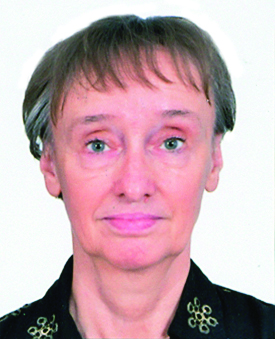If anyone wants to call anyone names be precise, at least one expects this from those considered educated!
During an interview dealing concerning the recent Israeli attack on Gaza Foreign Minister Shah Mahmood Qureshi told CNN anchor Bianna Golodryga that Israel is losing “the media war, despite their connections.” The anchor then asked the Pakistani leader to explain those “connections.” They [Israel] are very influential people,” Qureshi responded. “I mean, they control the media.” The CNN anchor Golodryga shot back, saying “I would call that an anti-Semitic remark.”
The accusation of a person being anti-Semitic or of the remarks he or she has made has become a common way of knocking down any argument that could be made in dealing with the state of Israel and the related conflict with Palestinians. It has cost many a politician his political career. In Germany with its history of Fascism and Holocaust any critical remark however casual is punished with the label of anti-Semitism and draws inevitably expulsion from elected office in party, parliament or otherwise. British labour leader Jeremy Corbyn and many others internationally have faced the same accusations. By effectively preventing or debasing any critic of Israel, or a real debate of the Middle East conflict that has been haunting that region and the world has been prevented this is a major contributing factor preventing its solution. In a way it means that the injustice that Jews have brutally and horrifically suffered during the Holocaust in Germany (and elsewhere in Europe) gives Israel the inviolable right to do the same to the Palestinians.
Racial classification is a result of the west-European Enlightenment that developed from the 18th century onwards, a new worldview that speculated about development and progress, postulated the equality of men but then started dissecting mankind into races attaching certain characteristics to them. In the 18th century the term began to refer to physical (phenotypical) traits. For instance, while John Stuart Mill in his essay on democracy explained how democracy would give equal rights to all he never thought that the same applies to the black and brown races of British colonial Empire. Until today Europe and the larger West are unable to critically deal with race and attached characteristics as well as the follow-up of it in colonialism and “white man’s burden”. Modern science regards race as a social construct, an identity which is assigned based on rules made by society. While partially based on physical similarities within groups, race does not have an inherent physical or biological meaning.

The term “Semitic” in a racial sense was a term for a racial and cultural group that was popular in the 19th and 20th centuries. Gaining prominence outside scholarly considerations and peaking in fascist ideology. The word Semite gives the false impression that antisemitism is directed against all Semitic people, e.g. including Arabs, Assyrians and Arameans. First used in print in Germany in 1879[6] as a scientific-sounding term for Judenhass (‘Jew-hatred’), and this has been its common use since then. Today formally it is no more valid because the very idea of race has been rejected after WW II, for instance as part of the Preamble to the Constitution of UNESCO, adopted on 16 November 1945. In 1978 the UNESCO adopted a ‘Declaration on Race and Racial Prejudice’ that precluded any kind of discrimination based on race and cultural behaviour. Scientifically it has been proven through genetic inquiries that there are no ‘clean races’, that the genes that provide for the difference in looks (facial features, skin colour and others) are but a minor variation of the genetic stock of men and that mankind shares most of its genetic pool. That is why Semites, Semitic peoples or Semitic cultures was a term for an ethnic, cultural or racial group until the 20th century, the terminology is now largely obsolete outside the grouping “Semitic languages”. Now, Semitic languages are a branch of the Afro-asiatic language family originating in the Middle East. They are spoken by more than 330 million people across much of West Asia, North Africa; the largest group is Arabic, spoken by about 300 million people. Hebrew, spoken by about 5 million people, is a Semitic language as well. Thus an educated person referring to someone as ‘Semitic’ or ‘anti-Semitic’ can in his right mind only refer to the language grouping of the person targeted which would include Arabs and Jews alike. But that defies the purpose of the accusation which is as a matter of fact meaningless.

Antisemitism is hostility to, prejudice, or discrimination against Jews. A person who holds such positions is called an anti-Semite. Antisemitism is generally considered to be a form of racism. May be manifested by expressions of hatred of or discrimination against individual Jews to organized pogroms by mobs or police forces, or even military attacks on entire Jewish communities. Notable instances of persecution include the Rhineland massacres preceding the First Crusade in 1096, the Edict of Expulsion from England in 1290, the 1348–1351 persecution of Jews during the Black Death, the massacres of Spanish Jews in 1391, the persecutions of the Spanish Inquisition, the expulsion from Spain in 1492, the Cossack massacres in Ukraine from 1648 to 1657, various anti-Jewish pogroms in the Russian Empire between 1821 and 1906, the 1894–1906 Dreyfus affair in France, the Holocaust in German-occupied Europe during World War II, Soviet anti-Jewish policies, and lastly and in the recent past Arab and Muslim involvement in the Jewish exodus from Arab and Muslim countries. Please note that exodus only started from the Muslim countries after the Balfour Declaration after World War I in contrast to the cruelties inflicted on Jews by Christians for our several hundred centuries.
Then what are we talking about? There is a long history of prejudices against Jews in Europe and beyond. Jews have been identified over the centuries by their religion and not by their race term that came up much later. The religious preoccupation against Jews in Christian West and in Muslim East are exactly that: an expression of the fight the new religions of the Christian church and Islam against the older, once predominant religion. Both Christianity and Islam consider all of humanity as their potential clients and are natural competitors to each other and to the older religions. Thus if expressing preoccupations against Jews at all it would be much more correct to call such attitude anti-Jewish or anti-Judaist. But as Muslims and Christians are not a homogenous group, neither are Jews, many of whom are not very religious today.
Considering the history of Islam, while the genetic stock of all the inhabitants of the Arabian Peninsula including that of Jews and Arabs was the same it was only their religion (and connected to it culture) that differed. Many of the early Muslims must have been converts from Judaism as most of the Christians have had Jewish roots as well. Leopold Weiss, an Austrian Jew better known as Muhammad Asad, is one of the later converts to Islam. Islam and the Quran refer to Jews explicitly and certainly admonitions about insincere conversions to Islam could be connected to Jews among others. But at no point had the Prophet (PBUH) condemned all Jews as a group. In the ‘Charter of Medina’ he had explicitly aligned his state with them and acknowledging them as equal citizens with equal rights and obligations. The respect for all prophets that is a fundamental part of Islam is reminded to us in the five-times daily prayers that let us ask God “My God, bless Muhammad (PBUH) and Muhammad’s (PBUH) family as you blessed Abraham and Abraham’s family”.
Thus while the existing of anti-Jewish feelings cannot be denied such behaviour is not based on any valid racial, cultural or even religious ground. It is a kind of folklore. Stereotyping Jews as greedy, selfish or deceitful may apply to individual persons of Jewish decent but are found within all other communities as well. Certain traits in the Jewish community might be explained by their history of displacement and expulsion and scattering over a large territory including Europe, Iran, Central Asia and Africa. Their ‘oriental’ background and alien culture of eating, clothing and celebrating made them seem exotic which led to them as being identified as “the other”, different and singled out over the centuries. While today it is mostly impossible to recognized Jews in the street, old habits die hard and that compels Jews to stick together and isolate themselves even more.

Coming back to our initial remark about the Foreign Minister being called anti-Semitic, such a qualification makes no sense at all. Avner Falk wrote, “The German word antisemitisch was first used in 1860 by the Austrian Jewish scholar Moritz Steinschneider (1816–1907) in the phrase antisemitische Vorurteile (antisemitic prejudices) to characterise the French philosopher Ernest Renan’s false ideas about how ‘Semitic races‘ were inferior to ‘Aryan races‘”.[16] It is high time to do away with such a misnomer. What are we facing then if not anti-Semitism? It is anti-Zionism.
(Contribution by)

Dr. Bettina Robotka, former Professor of South Asian Studies, Humboldt University, Berlin and Editor of the Defence Journal and a Consultant to Pathfinder Group).




